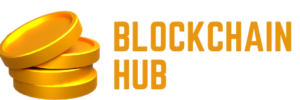
Australia pioneered water rights trading in the early 1900s, becoming a world leader in water sharing between valleys. The initiative extended throughout the states of Australia across the Murray-Darling Basin (MDB). However, findings from the water market’s inquiry of the MDB, completed by the Australian Consumer and Competition Commission (ACCC) and the Department of Climate Change, Energy, the Environment and Water (DCCEEW), highlighted a great many challenges of the system.
These challenges include a combination of paper-based and digital processing, slow processing, ambiguity and a loss of trust in the market. The outcomes of these challenges have manifested in various ways including reduced water quality due to shortages and reduced environmental flows. The impact of these outcomes were most expressively reported in the Australian media via images of fish kills.
Forecasts indicate that water scarcity will present a greater challenge in meeting long-term sustainability goals as the climate continues to change. While there is no silver bullet to solve the challenges of the water market, blockchain technology has the capacity to partially solve these challenges by increasing trust, transparency of trading and validation of market participants.
A path forward with a capable partnership
The ACCC recommended many changes to improve the water trading market, including using ‘distributed ledger technology’ and a ‘backbone platform’ for water trading. Arup and IBM® saw these recommendations as an opportunity to take a leadership role and propose the implementation of a blockchain-enabled water trading platform.
Blockchain is a shared, immutable ledger that facilitates the process of recording transactions and tracking tangible or intangible assets in a business network. Virtually anything of value can be tracked and traded on a blockchain network, reducing risk and cutting costs for all involved. As each transaction occurs, it’s put into a block. Each block is connected to the one before and after it. Transactions are blocked together, creating an irreversible chain.
Equigy, IBM Food Trust and Plastic Bank are instances of how blockchain can be successfully applied to tackle global societal problems across different industries, while ensuring trust and accountability of transactions.
Application of blockchain to water trading markets
A blockchain-enabled trading platform solves issues of transparency, incomplete information and lost opportunities. Where there is a lack of transparency of information, a distributed ledger shows all trades, allowing market participants to audit the blockchain at their convenience. A blockchain contains all the information (for all to access), which eliminates the issue of incomplete information. And blockchain only works with the buy-in and unanimous agreement of all participants, which creates trust.
Participants in the market enquiries conducted during the ACCC’s investigation acknowledged that the complexity of the market and the carriage of incomplete information (along with inaccessibility) led to inefficiency, lack of transparency and lost opportunities. The findings centered around four central areas of focus:
- Integrity and transparency
- Data and systems
- Market architecture
- Governance.
These areas aim to ensure water markets have integrity safeguards and participants have the information they need to make informed trading decisions.
Although the methodology that Arup and IBM proposed does not achieve all the recommendations made by the ACCC or by DCCEEW’s reports, it does provide a solution for actioning several recommendations to push the water trading market in the right direction. In response to these reports, Arup and IBM have focussed on what is achievable without the need for new policy to be written and agreed upon. Instead, the team focussed on recommendations made by the reports including improvement of market architecture and trade processes and information.
Next steps
The Arup and IBM team see this proposed methodology as a viable solution that should be tested in the real water trading market. In the same way that different states and territories across Australia trialled different COVID tracing measures (finally adopting the most successful methodology) we see this as one methodology to trial.
The complexities of the inter-valley trading (where a trade occurs across state borders) would be most robust to test against. Negotiating the state departments, differing nomenclature and varying approaches is a key sandbox for establishing a viable trading platform. The team have proposed inter-valley trading market locations where borders are shared between New South Wales and Victoria or Victoria and South Australia.
Achieving more from less is where digital technologies play a pivotal role, and we believe that a blockchain-enabled water trading platform for the Australian water markets will allow market participants to access sufficient supply, despite climate change forecasting less. A discussion paper on how blockchain technology can improve accountability and transparency within the Murray-Darling Basin can be downloaded below.
Download Murray-Darling Basin discussion paper on blockchain technology
Energy, Environment & Utilities, IBM Consulting, IBM Australia
Practice Leader for Blockchain IBM Consulting, IBM Australia
Australasian Digital Water Lead for Arup



